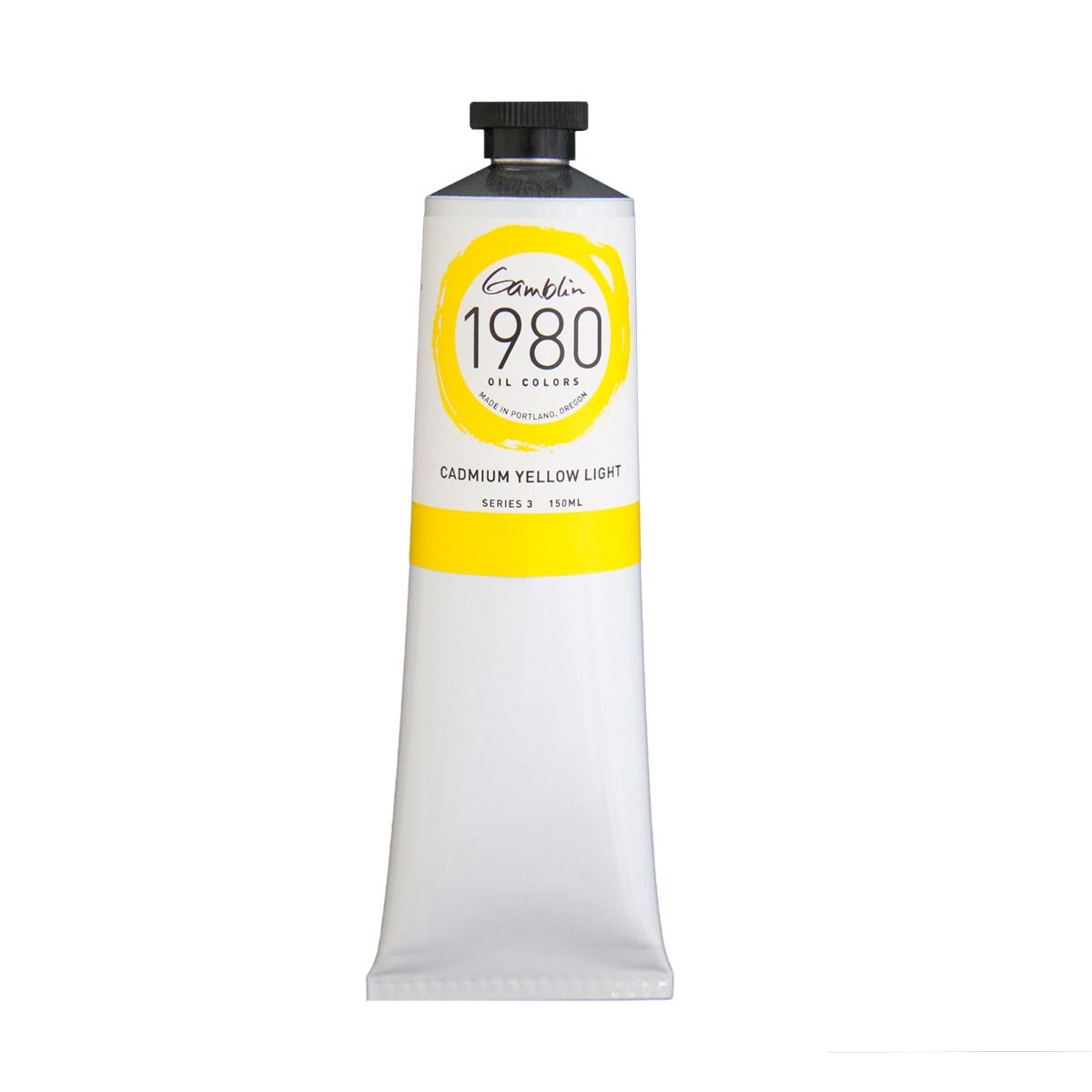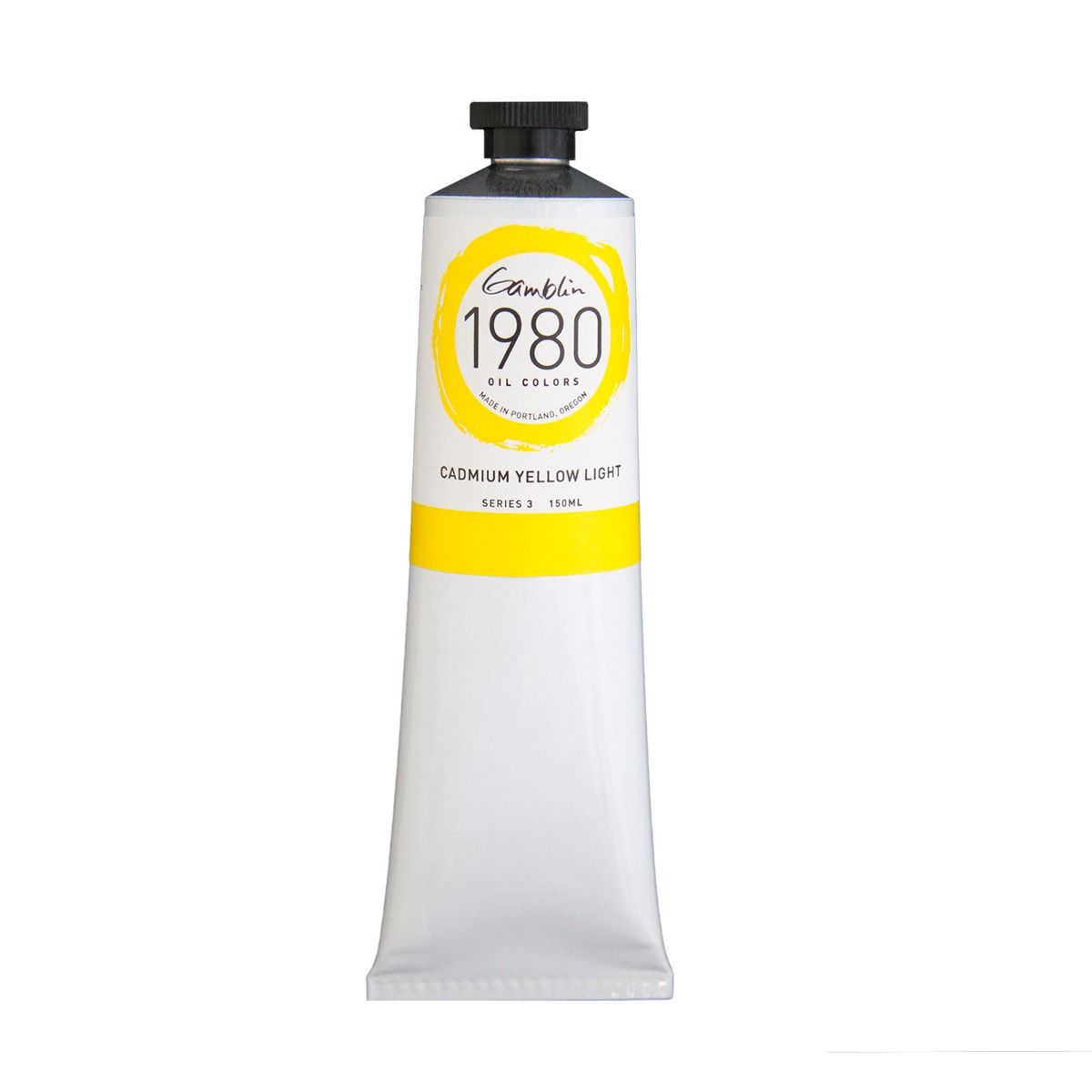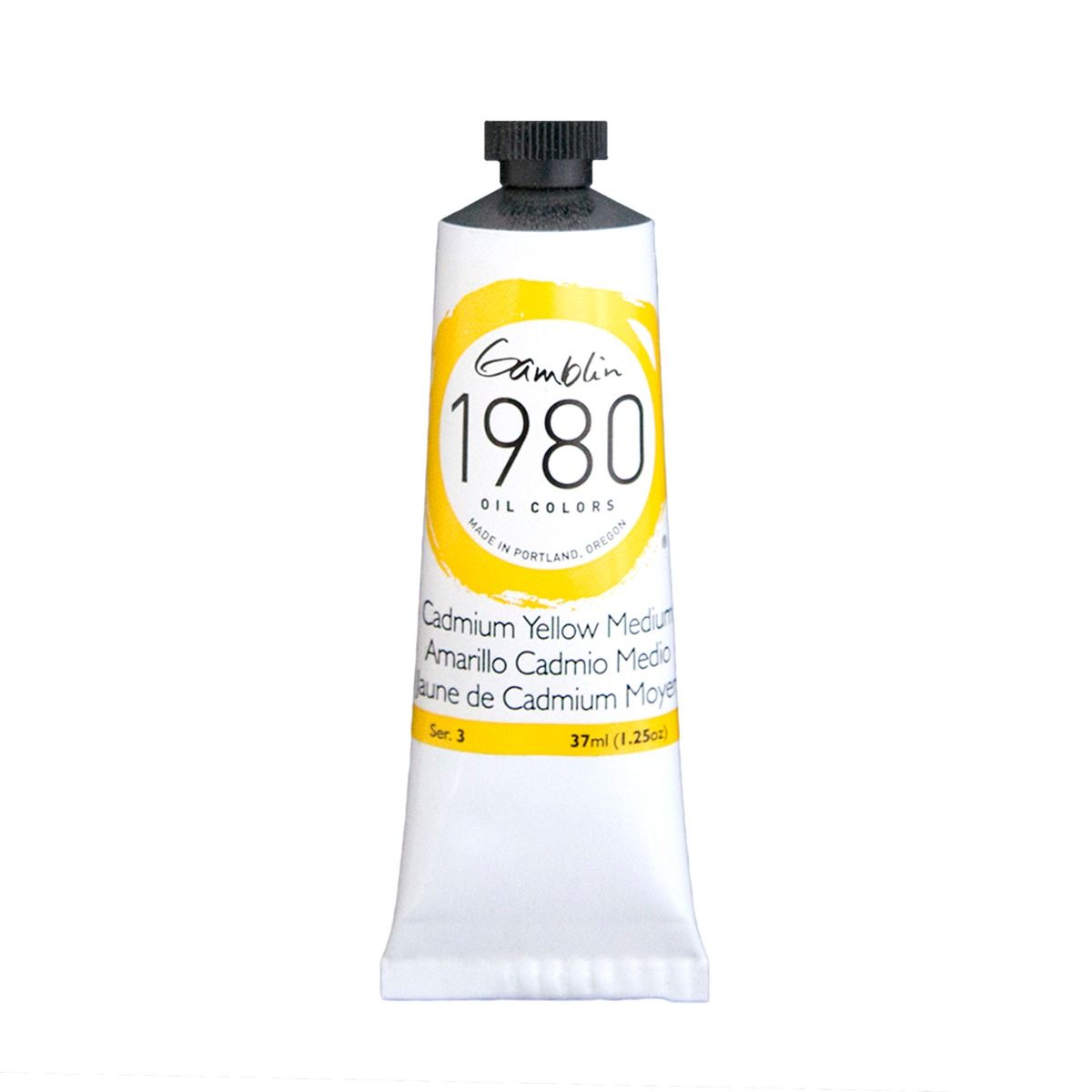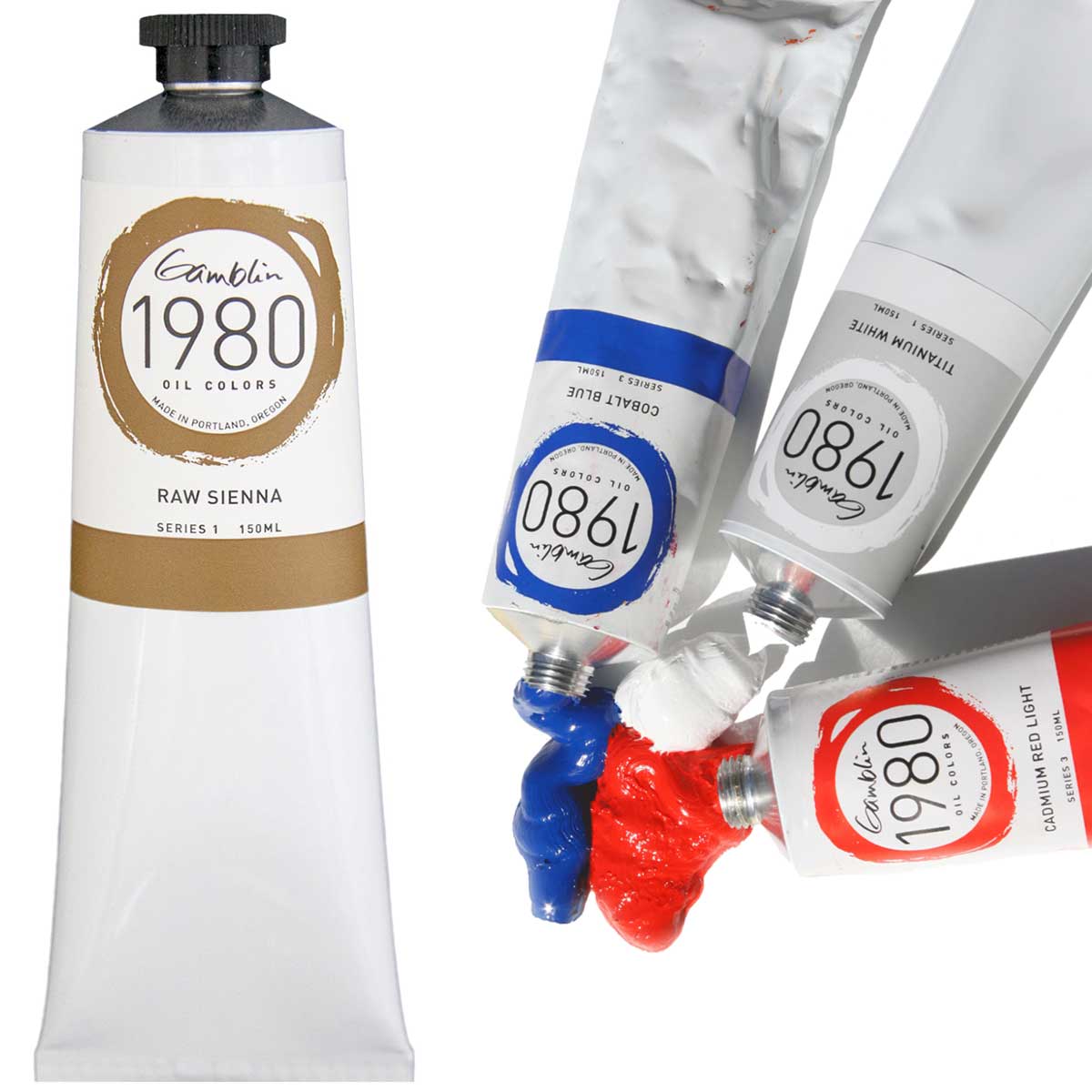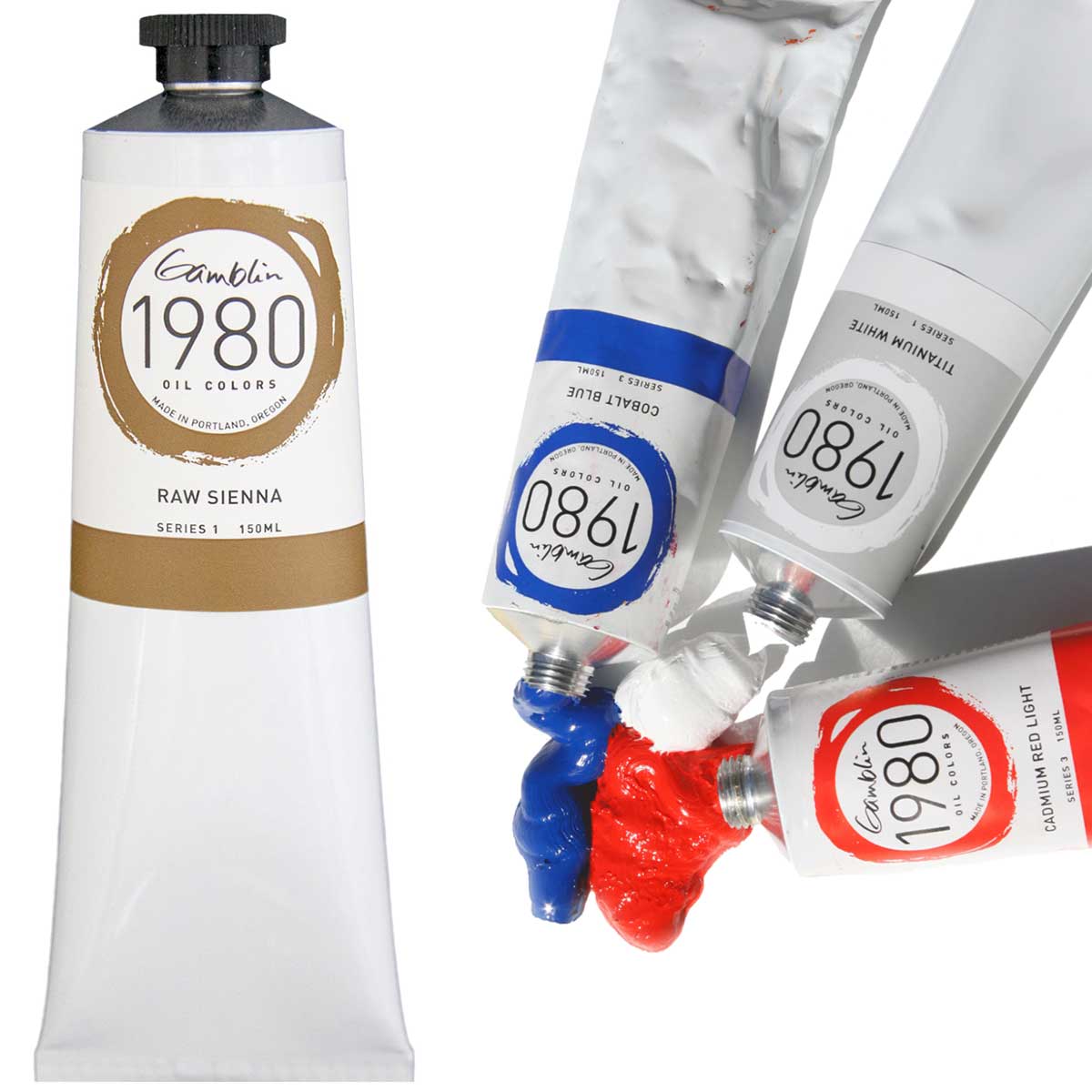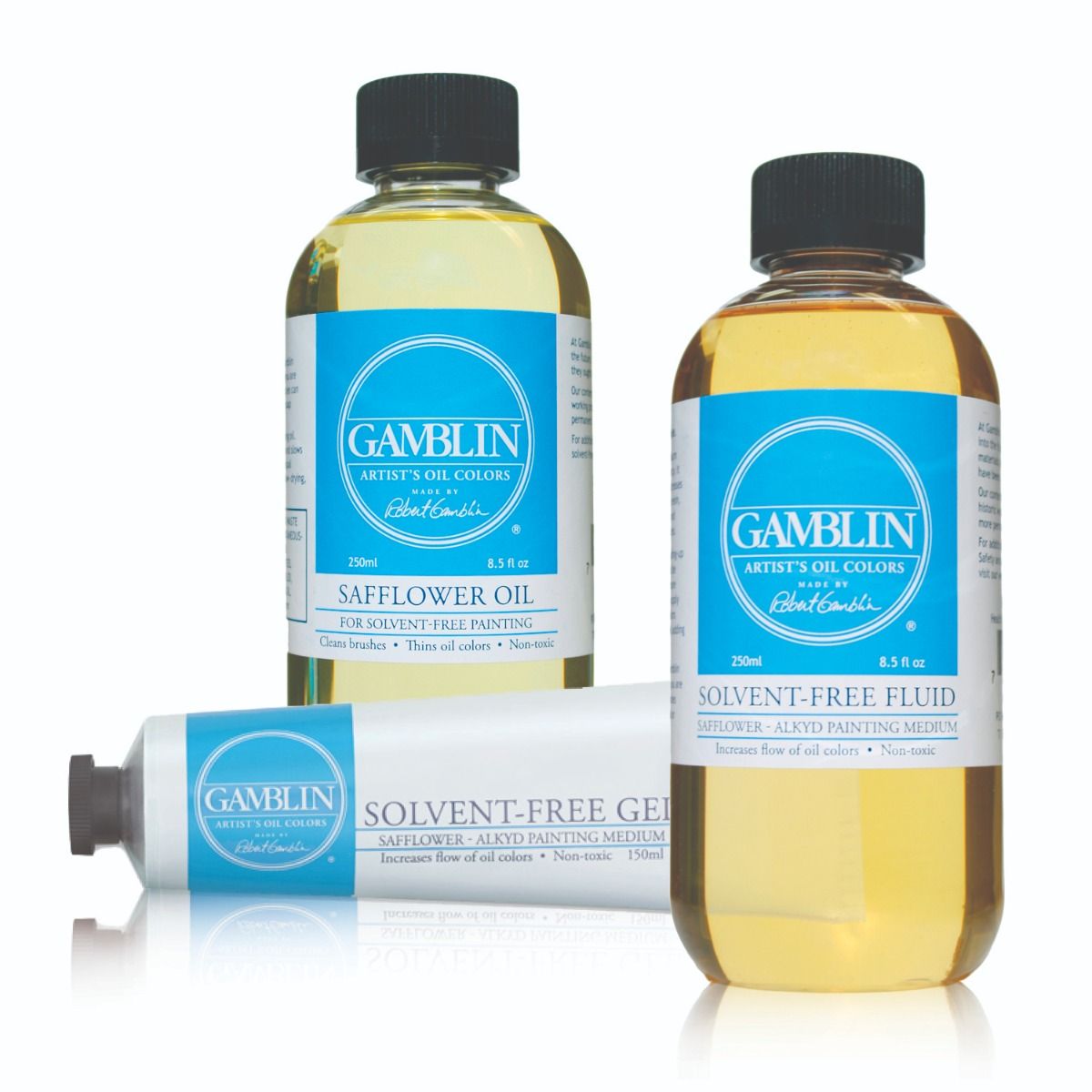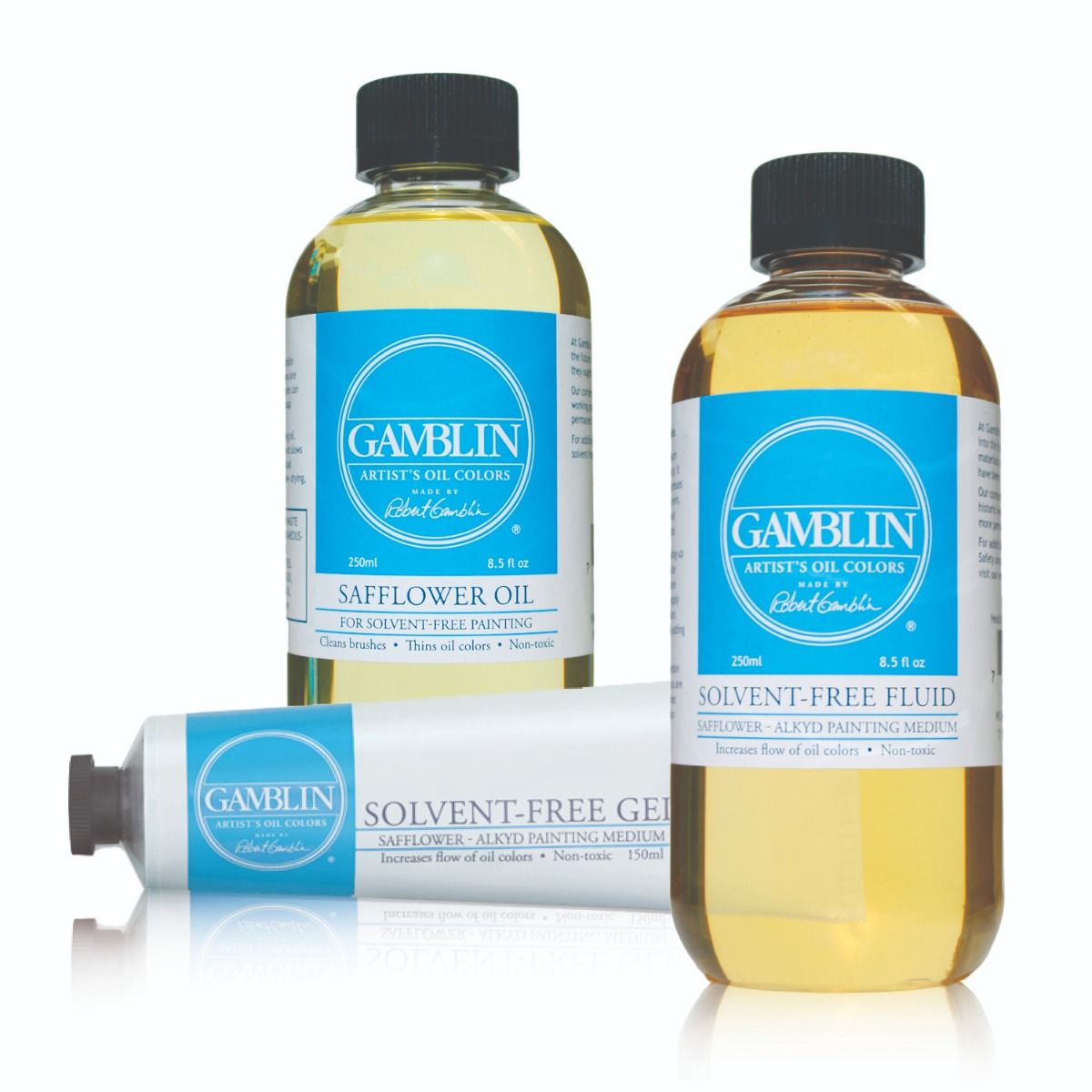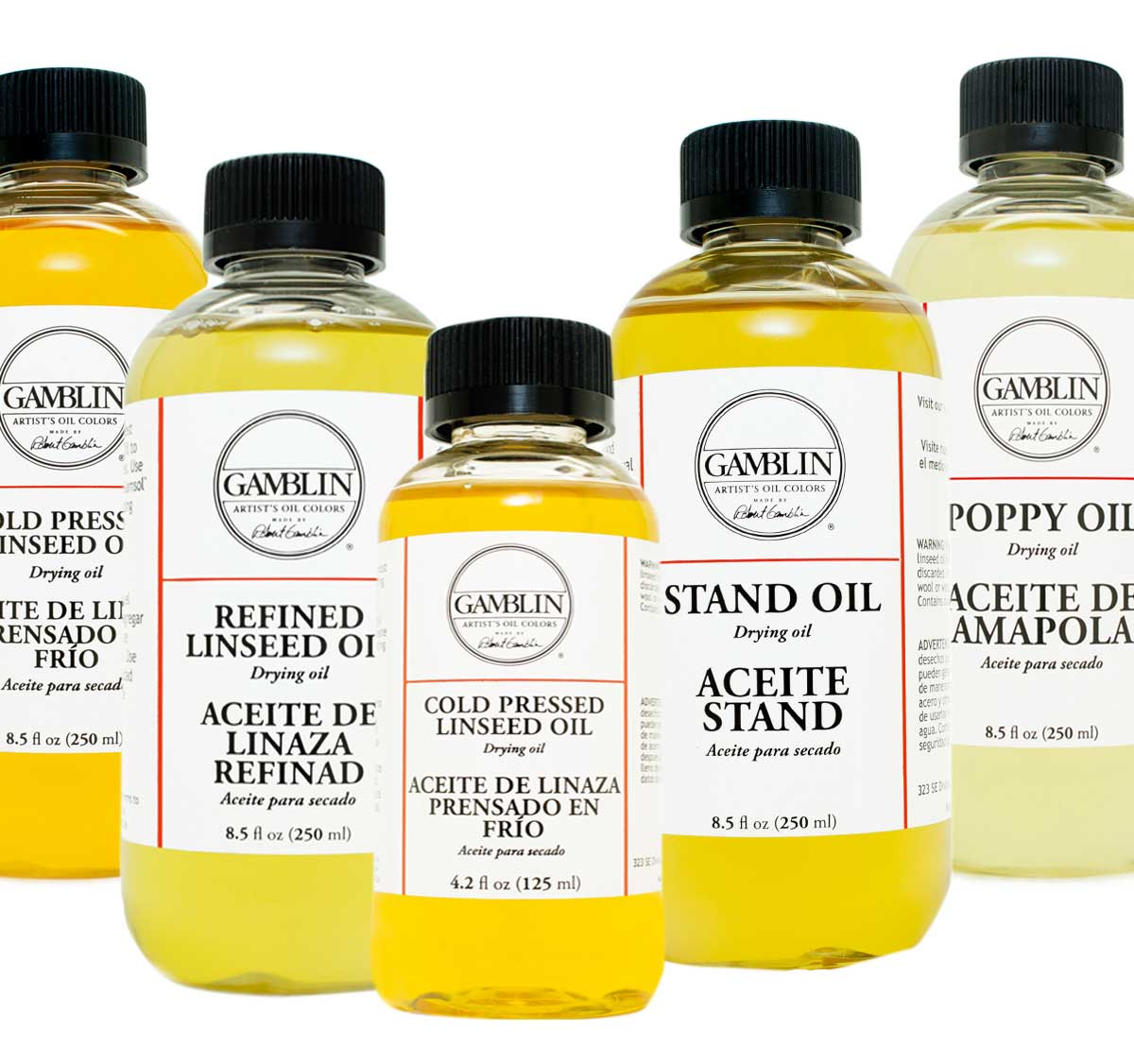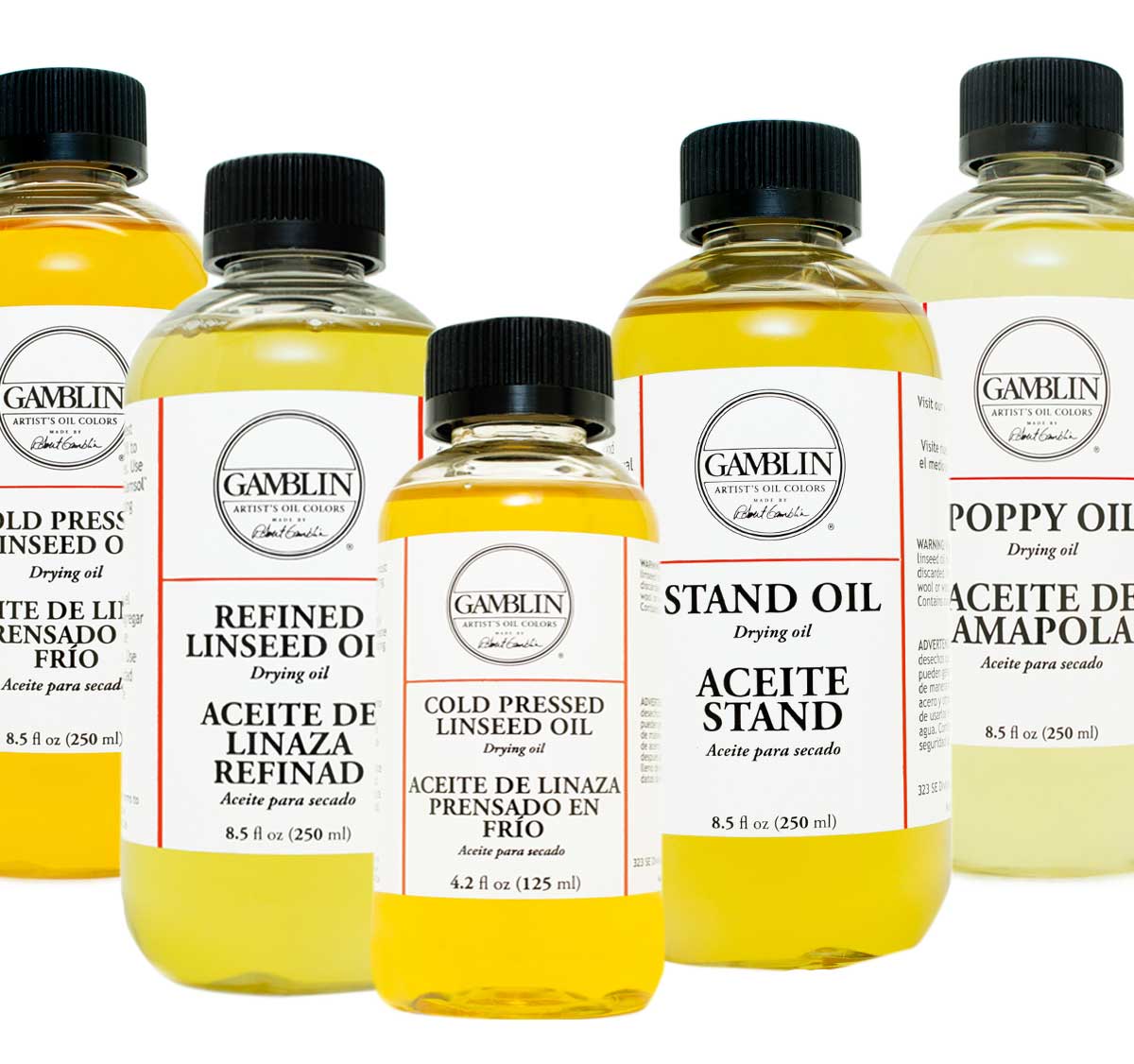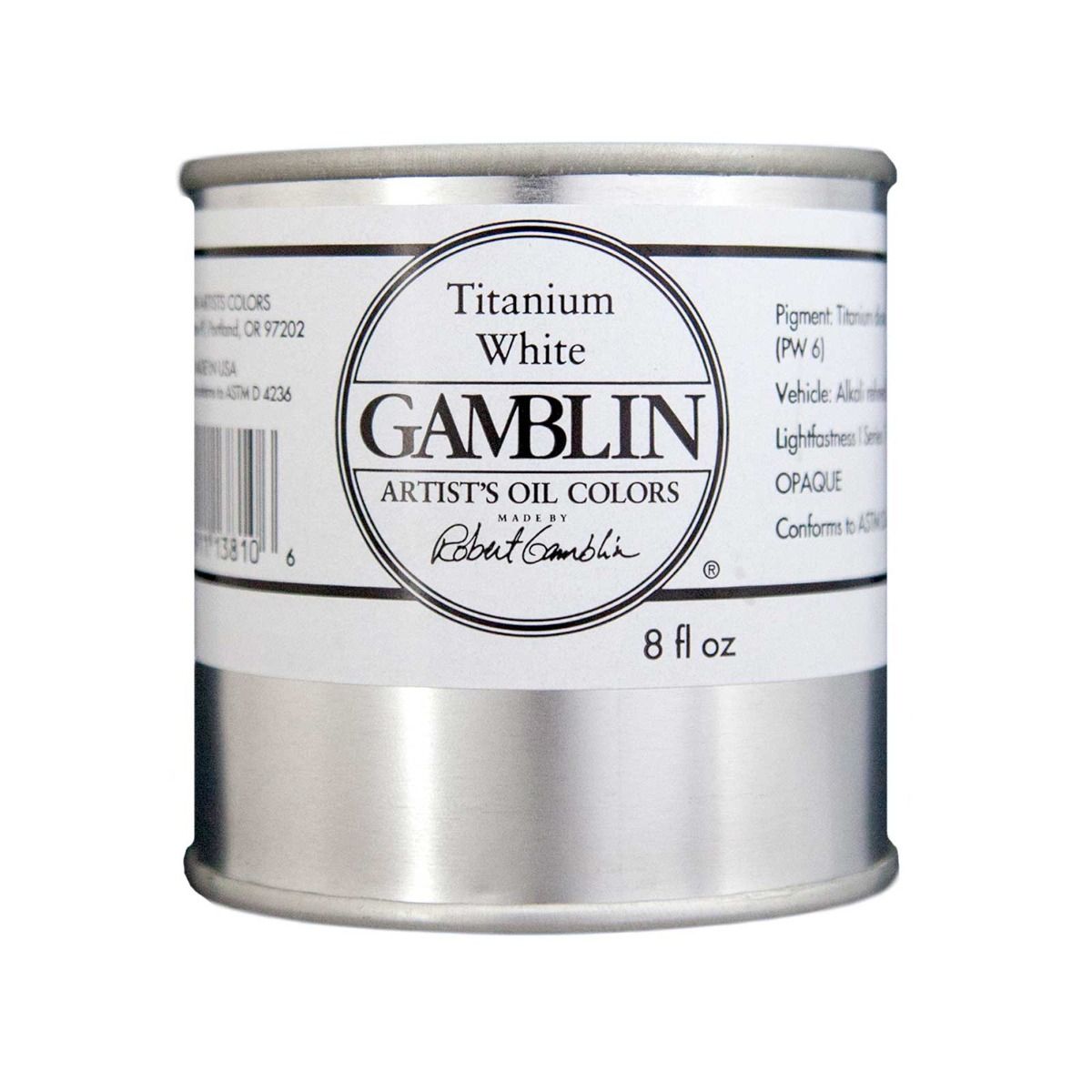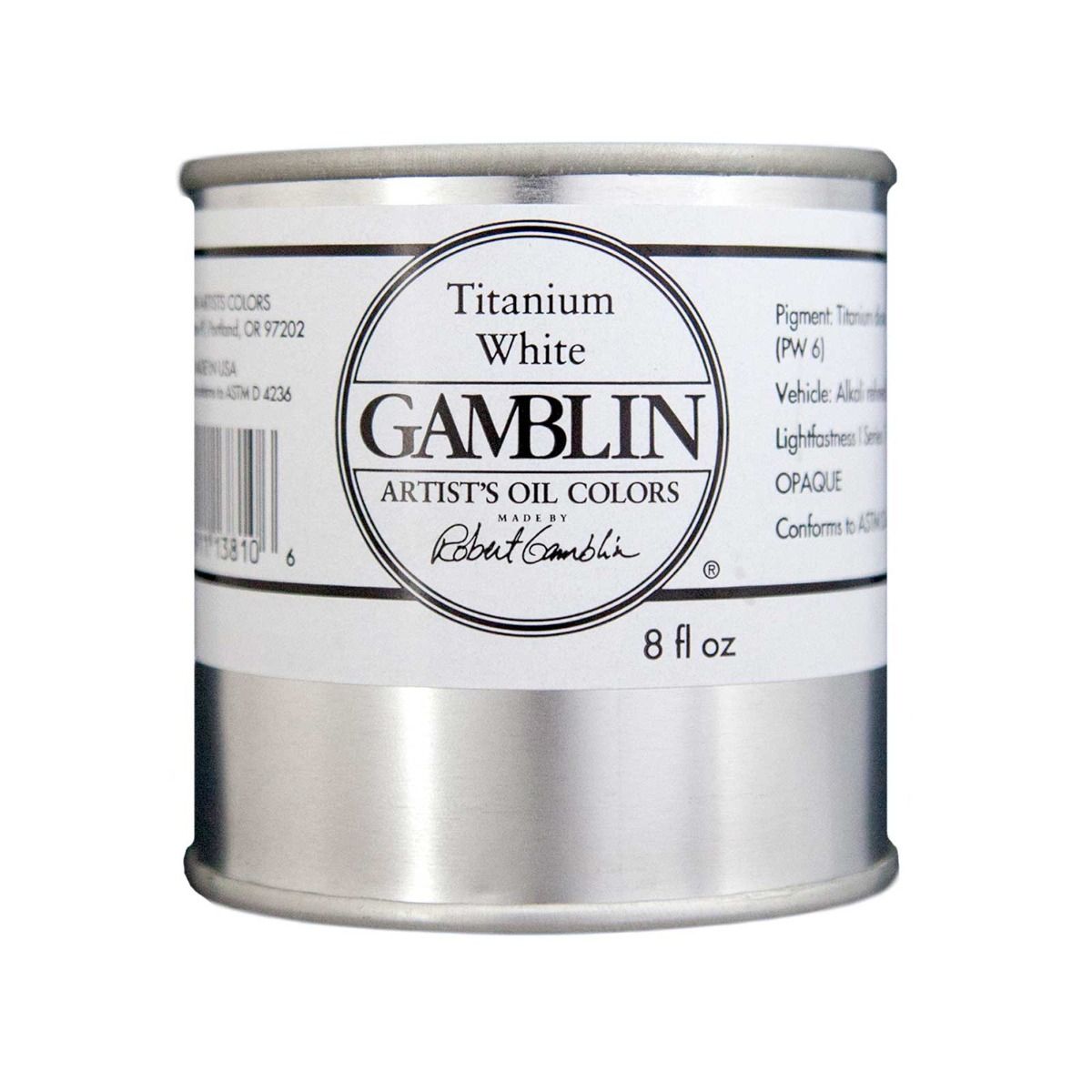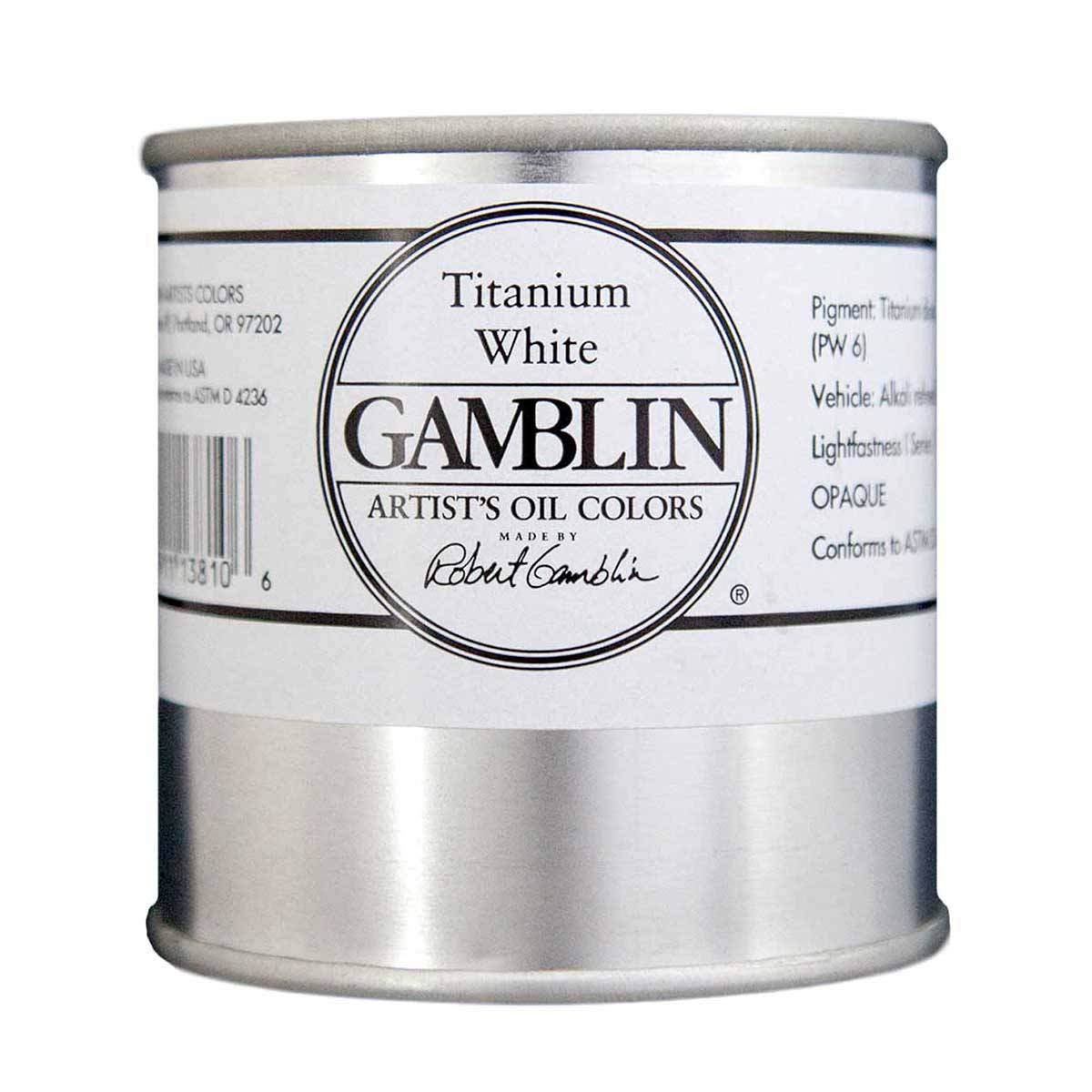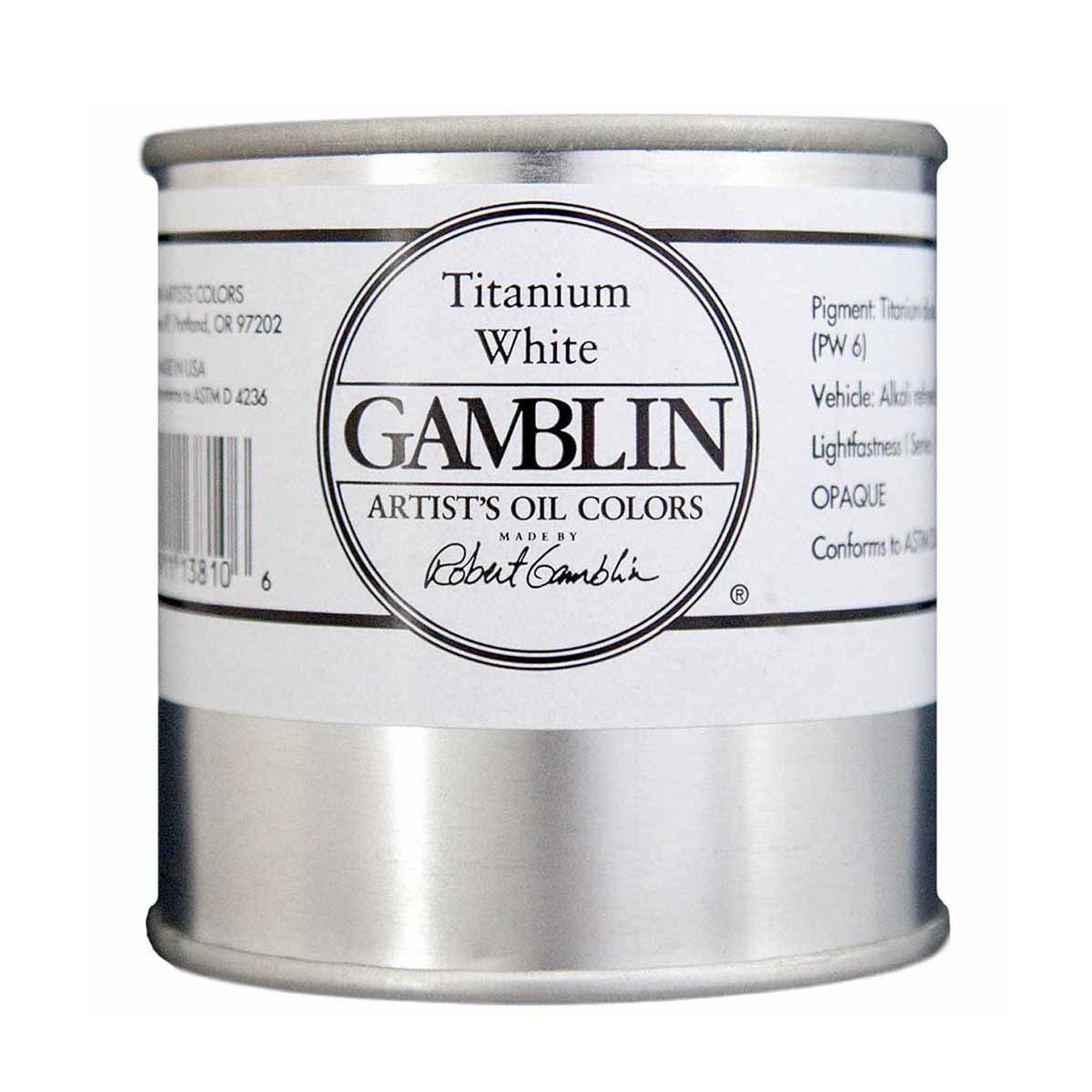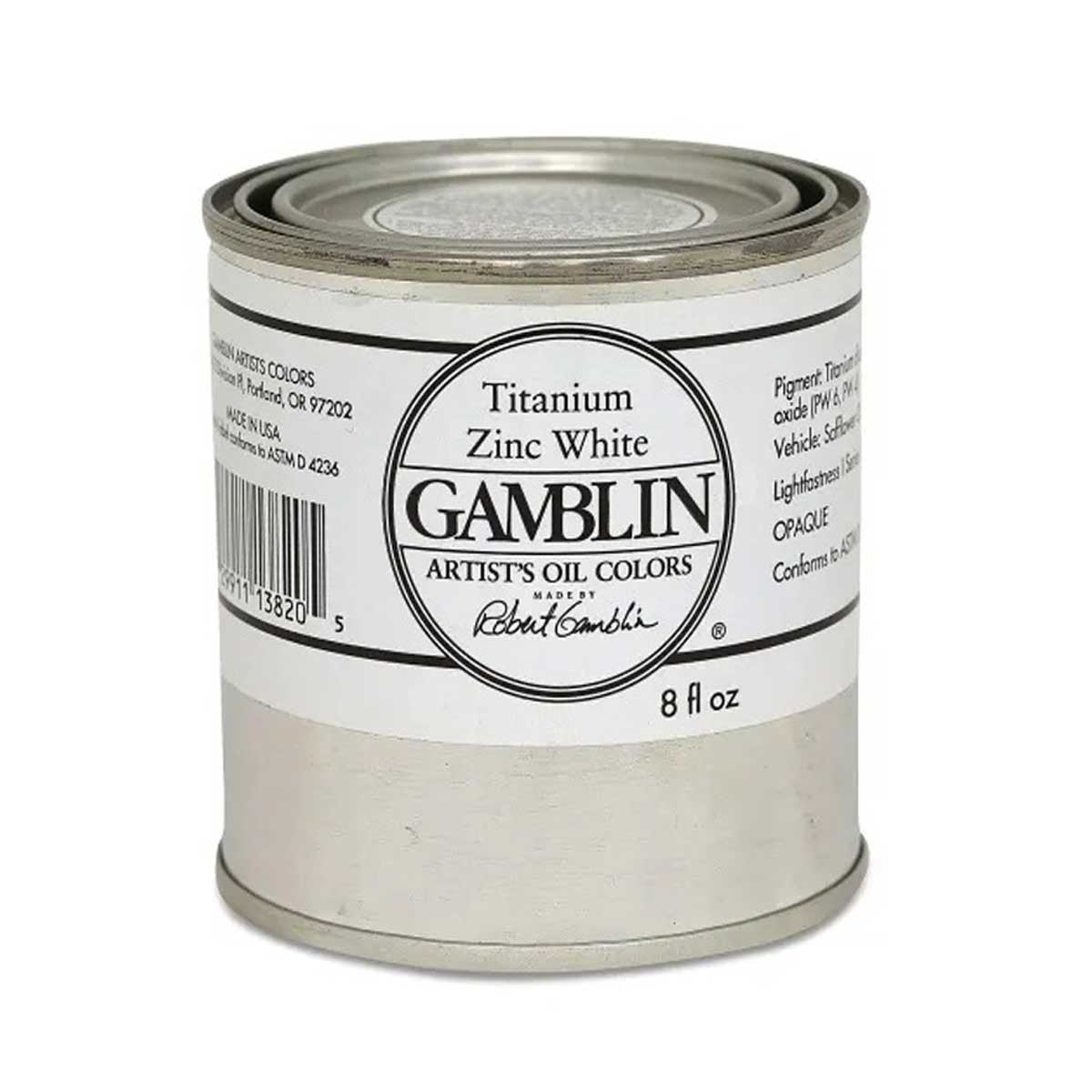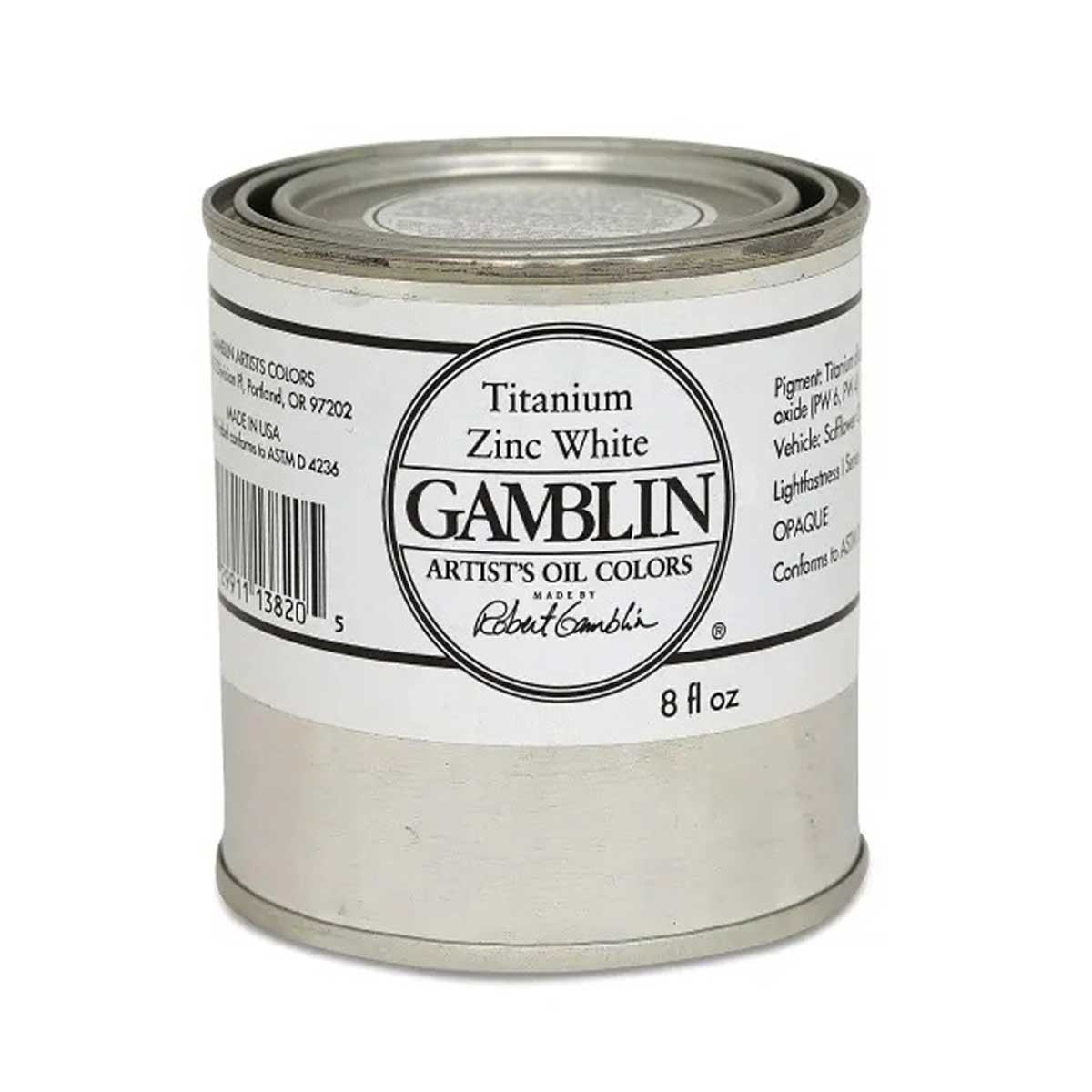Gamblin 1980 Oils - Cadmium Yellow Light, 150 ml (5.07oz)
Cadmium Yellow Light is a bright, cool, chemically pure Cadmium colour – one step warmer than our Cadmium Lemon. Excellent opacity. It is slow-drying in oil form.
Composition and Permanence:
- Pigment Name: PY35-Cadmium Yellow; PY3-Hansa Yellow 10G
- Pigment Type: PY35 inorganic, cadmium; PY3 organic, monoazo
- Lightfastness: I
- Opacity: Opaque
- Series: 3
Warning: SDS Cancer and reproductive harm – www.P65Warnings.ca.gov
Gamblin 1980 Oils - Cadmium Yellow Light (PY35; PY3)
Cadmium Yellow is brilliant, dense, and opaque, with good tinting strength and high hiding power. It is slow-drying in oil form.
Pigment Composition and Permanence:
Pigment Name: PY35-Cadmium Yellow
Pigment Type: inorganic, cadmium
Properties
Cadmium Yellow is brilliant, dense, and opaque, with good tinting strength and high hiding power. It is the artist’s principal bright yellow and is available in light, medium, and dark shades. The deeper shades appear deep orange and have the greatest tinting strength.
It is slow-drying in oil form and is used in both oil and watercolour forms. It cannot be mixed with copper-based pigments.
When Cadmium Yellow is mixed with Cadmium Red, a clean Cadmium Orange is created. Hues vary by brand.
Cadmium pigments have been partially replaced by azo pigments, similar in lightfastness to the cadmium colours, cheaper, and non-toxic. Cadmium Yellow is usually available in a pure grade or a cadmium-barium mix. This mix has the same permanence with a lower tinting strength.
Permanence
Cadmium Yellow is lightfast and permanent in most forms, but like most cadmium colours, it will fade in fresco or mural painting. The deeper shades are the most permanent. The pale varieties have been known to fade with exposure to sunlight in conditions where moisture can penetrate the binder.
Toxicity
Cadmium Yellow is a known human carcinogen. It can be hazardous if chronically inhaled or ingested.
History
Cadmiums get their names from the Latin word cadmia, meaning zinc ore calamine, and the Greek word kadmeia, meaning Cadmean earth, first found near Thebes, the city founded by the Phoenician prince Cadmus. Metallic cadmium was discovered in 1817 by Friedrich Strohmeyer. Oil colours were first made from Cadmium Yellow pigments in 1819, replacing toxic Chrome (lead) Yellows. However, their production was delayed until 1840 due to the scarcity of cadmium metals. Landscape painters, such as Claude Monet, preferred Cadmium Yellow to the less expensive Chrome Yellow because of its higher chroma and greater purity of colour.
2nd Pigment Composition and Permanence:
Pigment Name: PY3-Hansa Yellow 10G
Pigment Type: organic, monoazo
Properties
This Hansa yellow is transparent. It has excellent brightness and tinting strength, and its drying time ranges from average to slow. Hansa Yellow makes more intense tints and cleaner secondaries than Cadmium Yellows, especially when mixed with other organic or modern colours like Phthalo Blue and Green. Because they are more transparent, they have great value as glazing colours.
Permanence
This Hansa Yellow has fair to good permanence, particularly in the lighter shades.
Toxicity
Hansa Yellow has no significant acute hazards, though its chronic hazards have not been well studied.
History
Hansa Yellows were first made in Germany just before WW1 from a series of synthetic dyestuffs called Pigment Yellow. They were intended to be a synthetic replacement for Cadmium Yellow.
| Size | 150 ml |
|---|---|
| Brand | Gamblin |
| Country of Manufacture | United States |
| Type of Store Credit value | Select |










